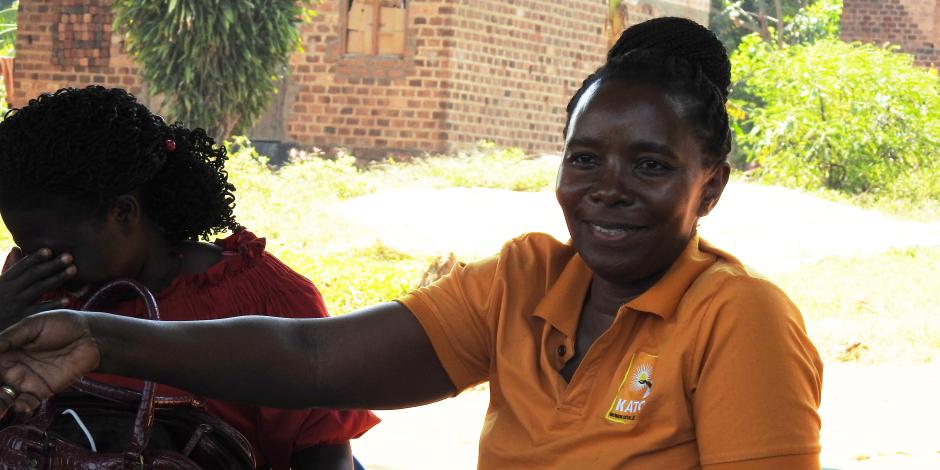Globally, women make up about 47 per cent of people who depend on fishing to live. The exact number is hard to define, as women’s work in the blue economyNutzung von Meeresressourcen unter Nachhaltigkeitsaspektenblue economy, commercial and small-scalein kleinem Ausmaß, Klein-small-scale fishing, is often undocumented. Gender stereotypes mean many women don’t get the chance to move into the better management jobs in the industryBrancheindustry. Instead, they mainly do the work of process sth.etw. verarbeitenprocessing the caught fish.
In Uganda, too, fish farming is dominated by men, but in one community, on the shores of Lake Victoria, the women are helping each other. In 1996, Margaret Nakato and other women found sth.etw. gründenfounded the Katosi Women Development trustStiftungTrust. “We were be driven to do sth.hier: es für notwendig halten, etw. zu tundriven to support women in fishing, as fish exportation drove those be engaged in sth.bei etw. mitwirkenengaged in fish smokingRäuchernsmoking out of business due toaufgrund vondue to price hikePreisanstieg, -erhöhungprice hikes,” Nakato told Business Spotlight. Along with coffee and tea, fish is one of Uganda’s biggest exports.
We were driven to support women in fishing
Nakato explains that many fisherwomen lost their boats after their husbands died of AIDS. “A neighbour share sth.hier: (von) etw. berichtenshared how her in-lawsSchwiegerelternin-laws did not see it see it fit (non-stand.)es für richtig haltenfit that she retain sth.etw. behaltenretained the boat after her husband’s demiseAblebendemise, despite having worked alongside him,” she says. “This provoke sb.hier: jmdn. veranlassenprovoked me to organize women to work together to cater to sth.etw. adressieren, auf etw. eingehencater to their challenges.”
HIV remains a big problem here. In 2023, 1.4 million Ugandans lived with the virus, according to the World Health Organization (WHO). In early 2024, the Uganda AIDS Commission reported that HIV infection rates in fishing communities were several times higher than the national average for adults aged 15–49. The reasons are complex, but geographical remotenessAbgeschiedenheitremoteness makes it difficult to get information, testing and treatment.
From sea to land
Meanwhile, the Katosi Women Development Trust grew quickly. Overfishing of Lake Victoria led to a banVerbotban, and the women had to find a new source of income. They bought cows and began dairy farmingMilchviehhaltungdairy farming. “One woman shared the idea and, although the animals are costlyteuercostly, we dive in(to) (sth.)(in etw.) eintauchen; hier: (bei etw.) sofort mitmachendived in,” Nakato says. “We bought four cows, for one million Ugandan shillings (around €245) each.” The project supported the women and their families during the changes in the fishing industry. With the profits, they bought important infrastructure, such as water harvesting tankAuffangbehälterharvesting tanks, community boreholeBohrlochboreholes and biogas equipment.
Now, there are more than 30 similar groups in the region, with about 1,000 women in total. Nakato has plans to expand further and help women in other fishing communities.
Neugierig auf mehr?
Dann nutzen Sie die Möglichkeit und stellen Sie sich Ihr optimales Abo ganz nach Ihren Wünschen zusammen.



